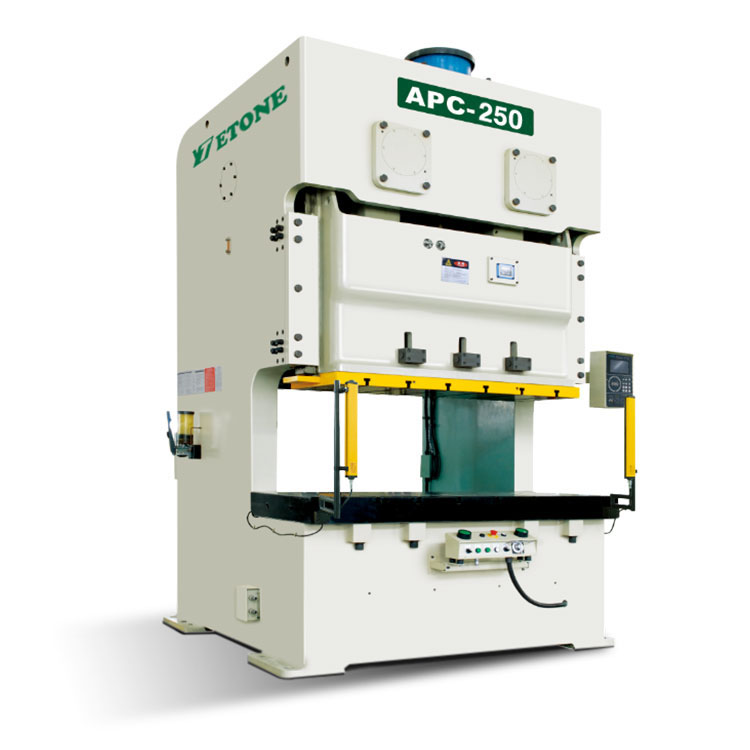A mechanical power press is a device that uses a mechanical transmission system to generate pressure. It is widely used in metal processing, plastic molding, stamping, die-casting and other industries. The following are the main uses and characteristics of mechanical power presses:
Uses:
Stamping: Mainly used for stamping, cutting, bending, drawing and other processes of metal sheets. The metal sheets are deformed by pressure to produce metal parts of various shapes.
Plastic molding: In the plastics industry, mechanical power presses are used to compress plastic materials, such as injection molding, extrusion molding, etc., and are widely used in the production of plastic products.
Die casting: Mechanical presses are used for high-pressure casting of metal parts, especially in the casting of materials such as aluminum alloys and copper alloys, to ensure accuracy and surface finish.
Molding and pressing: Suitable for pressing and molding of materials such as rubber, paper, and wood, and are widely used in shoemaking, paper products and wood processing industries.
Metal forming: Used in hot or cold processing of various metal materials, such as stretching, rolling, forging, etc.
Testing and inspection: Mechanical presses can also be used to test the mechanical properties of materials, such as tensile tests, compression tests, etc., to help analyze the strength and ductility of materials.
Features:
Strong and durable structure: Mechanical power presses are generally made of high-strength steel, can withstand large workloads, and have high durability.
High-precision processing: Through the mechanical transmission system, accurate pressure control and processing accuracy can be achieved. For the molding of parts requiring high precision, mechanical presses can provide reliable processing results.
Strong adaptability: Mechanical power presses can adapt to different process requirements, such as stamping, molding, casting, etc., and can adjust working parameters according to different materials and processing requirements.
Working stability: The mechanical transmission system of the mechanical power press is relatively stable, with small vibration and low noise during operation, which is suitable for large-scale production.
High efficiency: Due to the high working efficiency of the mechanical transmission system, it can complete more complex processing tasks in a shorter time, which is suitable for mass production.
Simple operation: The operation of the mechanical power press is usually more intuitive, the control system of the equipment itself is simple, easy to use and maintain, and suitable for most operators to operate.
Low maintenance requirements: Compared with hydraulic presses, mechanical power presses have relatively low maintenance costs, less mechanical component wear, less prone to failure, and longer service life.
Wide working range: It can be applied to workpieces of different sizes, and the working pressure and speed can be adjusted according to demand to meet a variety of industrial production requirements.
Summary:Mechanical power presses are widely used in various manufacturing and processing industries due to their sturdy structure, efficient working capacity and low maintenance costs, especially in metal stamping and plastic molding. Its high precision and simple operation make it one of the core equipment in industrial production.


